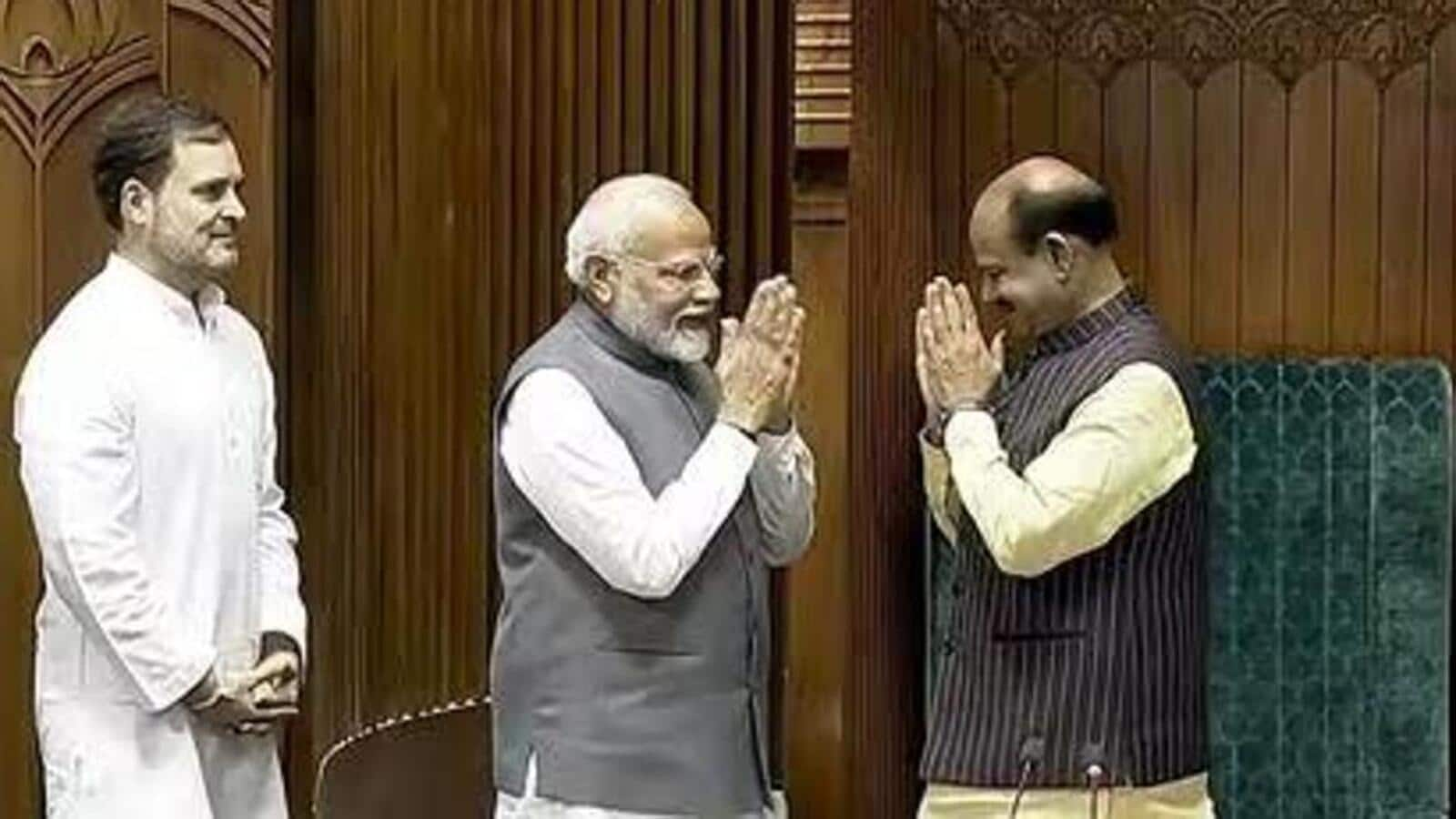Congress lodges formal objection with Birla over 1975 Emergency remarks
What's the story
The Congress on Thursday lodged a formal objection with Lok Sabha Speaker Om Birla over his reference to the 1975 Emergency, which he called a "black chapter" in his acceptance speech.
Congress general secretary KC Venugopal called the incident "shocking" and a "travesty of Parliamentary traditions."
Birla, while marking the 49th anniversary of the Emergency on Wednesday, called it a "dark day in the history of India" and asked for two minutes of silence, sparking protests from the opposition.
Meeting details
Opposition leaders meet Speaker over emergency reference
"We discussed many issues about Parliament. Rahul ji, the LoP, informed him (Birla) that it was a political reference and it could have been avoided," stated Venugopal.
"Making of such a political reference from the Chair is unprecedented in the annals of the history of Parliament. This coming from the Chair as one of the first duties of a newly-elected Speaker assumes even graver proportions," Venugopal wrote to Birla.
Letter details
Expect opposition's voice won't be crushed: Rahul to Birla
Birla made the remarks shortly after Leader of Opposition Rahul Gandhi congratulated him on being elected as Lok Sabha speaker for the second time in a row.
In his congratulatory message, Gandhi stressed the importance of trust-based cooperation between the government and opposition.
He stated that while the government holds political power, the opposition also represents India's people's voice.
He said that as speaker, Birla is the final arbiter of India's people's voice, represented by the Lok Sabha.
Presidential address
PM Modi backs Birla
Later, Prime Minister Narendra Modi added fuel to the fire by backing Birla for his remarks at Parliament.
"It remains a fitting example of what happens when Constitution is trampled over...The happenings during the Emergency exemplified what a dictatorship looks like," the PM wrote on X.
The row over the remarks started even before the first session of the 18th Lok Sabha, when PM Modi, in his pre-session remarks, called the Emergency a "black spot" on democracy.
